What is Style in Writing?
Style is what makes your writing come off as strong and effective. It is the fluidity of your word choice and the tone you choose to use when addressing your audience.
Why is Style important?
All styles are subjective. This means that no matter how you write your paper, there may be some readers who find the writing more or less effective. However, depending on what style you choose to write in, you can influence how your audience will view the message.
Improving your Style
Remember that the main goal of your writing is to get your message across to your audience. Although you may read or use academic sources that have an intellectual style, it is important to place your own style based around how easily your intended audience will understand what is being stated. This can be done while still giving yourself the credibility of a writer who knows their topic. Sometimes your instructors may allow a “friendly style”, in which your writing is being expressed to a reader as though they are involved in a conversation among friends. However, depending on your topic, it is often best to convey your message in a style that is concise with broadly accessible language.
Across all writing, there are some issues that writers tend to have when properly developing their own style.
Wordiness:
Sometimes, writers will use more words than needed to say something. This can happen either by accident or on purpose. Though either way, it can make your writing difficult to understand to your audience if they have to read through words that add no meaning to the base message stated.
Here are some ways that wordiness can appear in your writing, and how to fix it in your revision.
Stock Phrases
Stock phrases are a series of words that can typically be replaced with one or two words. Too many stock phrases can give readers a hard time understanding your work, and the main idea you're trying to get across to them.
Here is an example of a sentence with a stock phrase: Many writers do not accept the idea of brainstorming due to the fact that it is possible that the process can take some extra time in the day to complete.
By removing/replacing stock phrases, you can make the sentence easier to read and understand: Many writers reject the idea of brainstorming because it can take extra time to complete.
These tables provide lists of common stock phrases and how they could be changed.
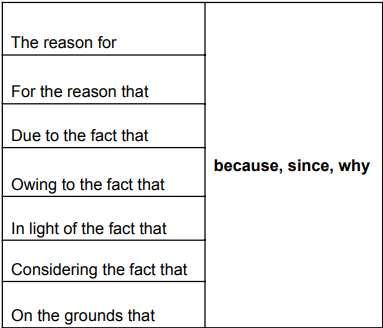



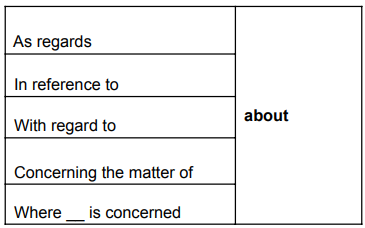
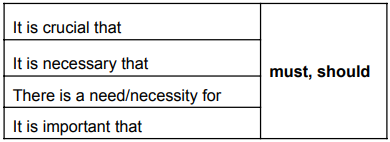
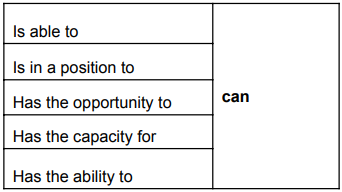
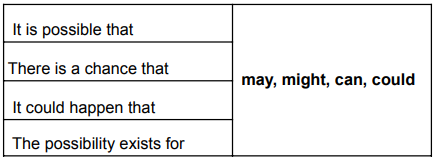
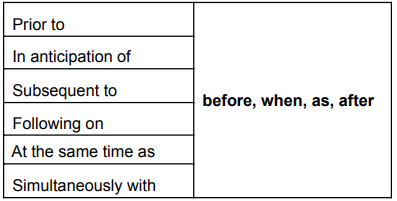
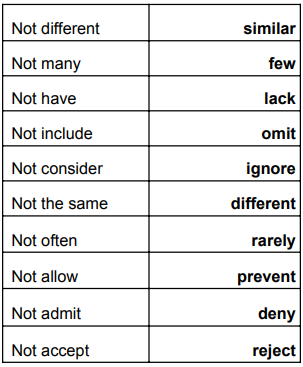
Voice:
In almost any type of writing, there is a voice that is projected to your readers. A writer's voice can affect how reader's will interpret what's on the page in both positive and negative ways.
The following are two aspects of Voice that can have negative effects on a paper's overall Style.
Passive Voice
While not all uses of passive voice can be attributed to poor style, most situations where passive voice is used could be better read if written in an "active voice". Passive voice can make some sentences difficult to understand on the first read, which affects a reader's overall understanding of the idea or message you're trying to convey. Passive voice happens when you make the object of an action, into the subject of a sentence.
Passive Voice = form of "to be" + past participle
Example: The ball was kicked by Jacob.
Example with Active Voice: Jacob kicked the ball.
Weak Verbs
Sometimes sentences can lack meaning because of weak verbs. Vague “to be” verbs can impact the direction the readers will understand your sentence.
Example: Rosie went to the store.
Example with stronger verb: Rosie sprinted to the store.
In the second example, readers can interpret a sense of urgency, whereas the first example doesn't specify any emotion.
Global and Local Concerns in Writing
When you come into the Writing Center, you have the option to focus on global and local concerns in your writing. Although neither are more important than the other, since sessions can run up to 45 minutes, sometimes it's best to choose a target area to go over with your consultant.
Global Concerns:
Global concerns can include "big picture" concepts when it comes to the paper, such as:
- Focus and importance of ideas and details
- Development of ideas
- Transitions
- Audience consideration
- Order and connection of ideas
Local Concerns:
Local concerns tend to focus on smaller aspects of the paper that when put together, still affect the overall style. Such local concerns could be:
- Sentence variety
- Repetition
- Comma splices
- Prepositions and modifiers
- Clichés and slang
Back To Tools
Works Consulted
Florida State Writing Center Resources

